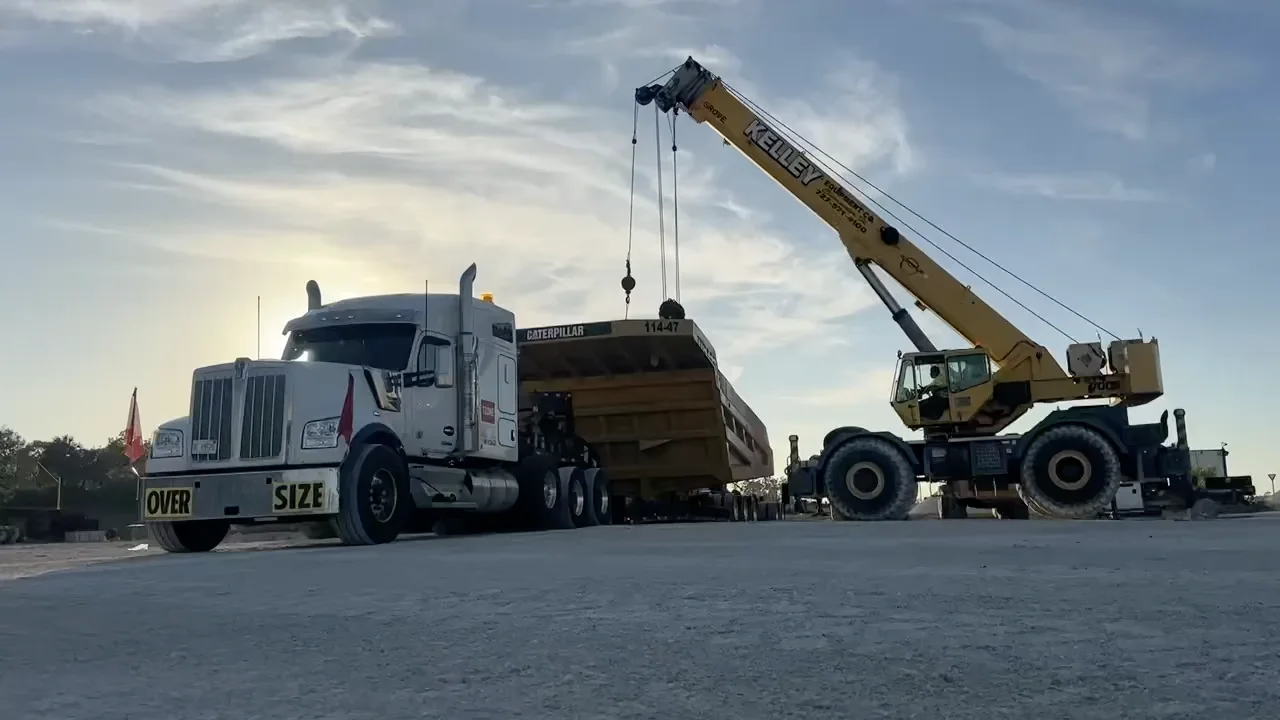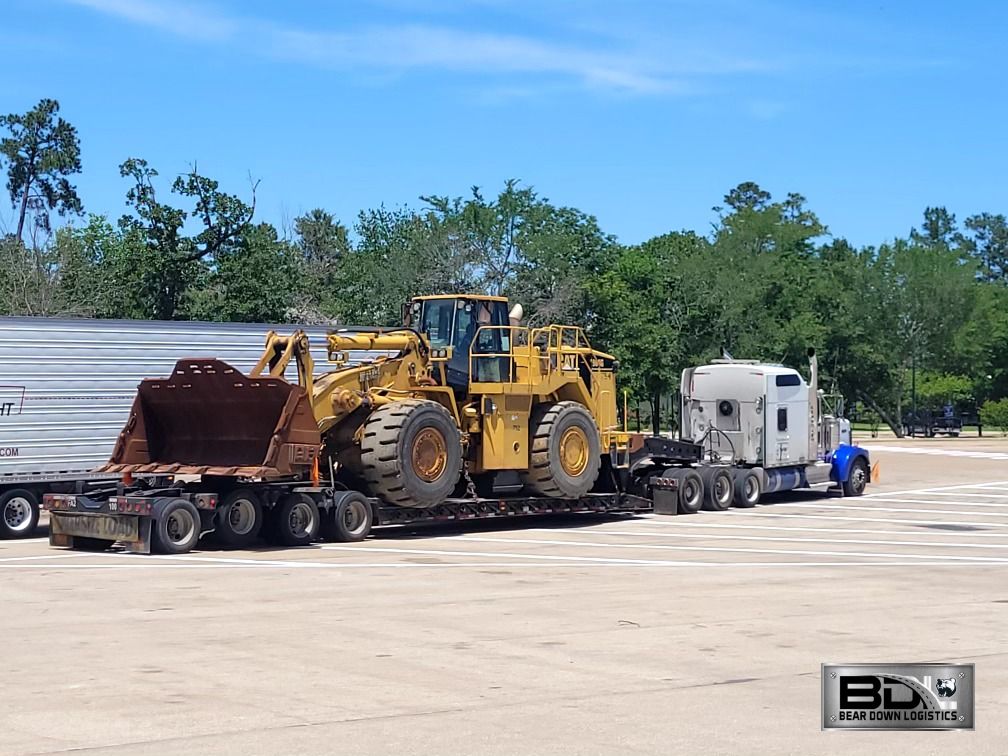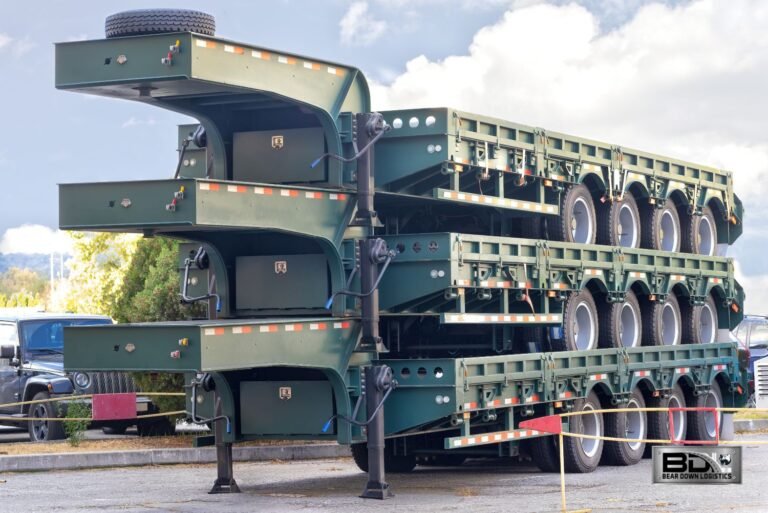Why Is Heavy Hauling Important for Construction Projects Introduction
Construction projects require the movement of massive equipment, materials, and machinery to operate efficiently and meet deadlines. From bulldozers to concrete beams, transporting these oversized loads safely is critical to keeping projects on track. This is where heavy hauling comes into play. Companies like Bear Down Logistic provide the expertise, vehicles, and coordination required to move oversized and overweight cargo with precision, ensuring construction projects progress smoothly and without delay.
The Role of Heavy Hauling in Modern Construction
Construction sites are often compared to complex ecosystems, with multiple moving parts working together to achieve a shared goal. Heavy hauling acts as the backbone of this ecosystem by facilitating the transportation of essential resources. Without proper hauling solutions, equipment and materials could not reach the site on time, leading to costly delays and inefficiencies. The reliability of heavy hauling ensures that even the largest machinery and structural elements arrive intact, enabling construction teams to maintain productivity and safety standards.

Transporting Specialized Equipment
Every construction project requires specialized equipment, and many of these machines cannot be driven long distances on public roads. Excavators, cranes, and graders must be delivered directly to the site using specialized trailers designed to handle extreme weight and size. Heavy hauling companies provide lowboy trailers, flatbeds, and multi-axle configurations to accommodate this demand. These solutions minimize the risks associated with moving oversized loads and ensure that equipment arrives ready for use.
Ensuring Compliance and Safety
Transporting oversized and overweight loads is heavily regulated. Roads, bridges, and highways have strict guidelines regarding the weight and dimensions of vehicles that can travel on them. Heavy hauling companies are responsible for securing the proper permits, following approved routes, and adhering to state and federal transportation laws. This not only protects infrastructure but also safeguards the public. Trained operators and logistics professionals reduce risks by implementing safety measures such as escort vehicles, load balancing, and proper tie-down procedures.
Efficiency in Project Timelines
Meeting project timelines is one of the most critical aspects of construction. Heavy hauling directly influences scheduling because delays in transporting equipment or materials can halt operations. A skilled heavy hauling provider streamlines logistics, allowing construction managers to plan with confidence. Reliable transportation ensures that essential machinery is available when needed, eliminating downtime and keeping progress steady.
Supporting Large-Scale Infrastructure Development
Infrastructure development, such as bridges, highways, and industrial facilities, often requires moving materials that are too large for conventional transport. Steel beams, concrete segments, and prefabricated structures must be delivered intact to maintain integrity. Heavy hauling ensures that these massive components are transported without damage, allowing large-scale projects to move forward efficiently and safely.
Advantages of Professional Heavy Hauling Services
Professional heavy hauling services bring multiple benefits to construction projects. These advantages are not limited to transportation alone but extend into overall project management and execution.
-
Reliable transportation of oversized machinery and equipment
-
Compliance with transportation laws and regulations
-
Reduced risk of accidents or damage during transit
-
Improved project scheduling and efficiency
This combination of reliability, safety, and planning makes heavy hauling indispensable for construction professionals who manage complex projects with strict deadlines.
Overcoming Logistical Challenges
Construction sites are not always conveniently located. Remote areas, uneven terrain, and narrow access points can make transporting large loads particularly challenging. Heavy hauling companies use specialized equipment and detailed route planning to overcome these difficulties. This includes surveying roads, identifying bridge weight limits, and selecting the best trailers to handle difficult terrain. By addressing logistical challenges proactively, heavy hauling ensures that critical deliveries are made without unnecessary setbacks.
Protecting Equipment and Materials
Heavy machinery and building materials represent significant investments. Any damage during transportation could result in financial losses and delays in project completion. Heavy hauling providers use advanced securing systems, such as chains, binders, and protective padding, to ensure loads remain stable throughout transit. Proper load balancing also reduces strain on vehicles and roads, minimizing the risk of accidents or equipment failure.
The Human Expertise Behind Heavy Hauling
Technology and specialized equipment play a central role in heavy hauling, but human expertise is equally important. Skilled drivers, logistics planners, and safety personnel coordinate each step of the process. Their knowledge of traffic regulations, route planning, and load management ensures seamless execution. Construction companies rely on this expertise to move forward without disruption, knowing that their critical cargo is in capable hands.
Environmental Considerations
Construction projects today also face growing concerns about sustainability. Heavy hauling companies contribute to minimizing environmental impacts by selecting optimized routes that reduce fuel consumption, emissions, and road wear. By using modern trucks equipped with cleaner engines and fuel-efficient technologies, professional hauling services align with broader efforts to make construction practices more sustainable.
Building Trust in Construction Partnerships
Heavy hauling is more than just a service; it is a cornerstone of trust between construction companies and logistics providers. By delivering critical resources safely and on time, hauling companies like Bear Down Logistic build long-term partnerships with contractors and developers. This trust ensures smoother project execution and fosters a collaborative approach to tackling future challenges.

Conclusion
Heavy hauling is essential for the success of construction projects, providing safe, efficient, and reliable transportation of oversized equipment and materials. From ensuring compliance with regulations to protecting valuable investments, heavy hauling services enable construction teams to maintain timelines and meet goals. Companies like Bear Down Logistic demonstrate the importance of expertise and planning in this process, helping the construction industry grow stronger and more efficient. Without heavy hauling, modern construction projects would struggle to achieve the scale and precision required to meet today’s infrastructure demands.
FAQs
What types of equipment require heavy hauling?
Heavy hauling is typically required for excavators, bulldozers, cranes, graders, and other large construction machinery that cannot travel safely on public roads.
How do heavy hauling companies ensure safety during transport?
They use specialized trailers, secure tie-down systems, escort vehicles, and route planning to protect both the load and the public.
Why is route planning important in heavy hauling?
Route planning ensures that oversized loads avoid roads or bridges that cannot handle their size or weight, minimizing risks and delays.
Do construction projects of all sizes need heavy hauling?
While smaller projects may manage with conventional transport, large-scale and infrastructure projects almost always require heavy hauling for equipment and materials.
How does heavy hauling contribute to project efficiency?
By ensuring machinery and materials arrive on time, heavy hauling prevents delays, reduces downtime, and helps construction teams stay on schedule.


